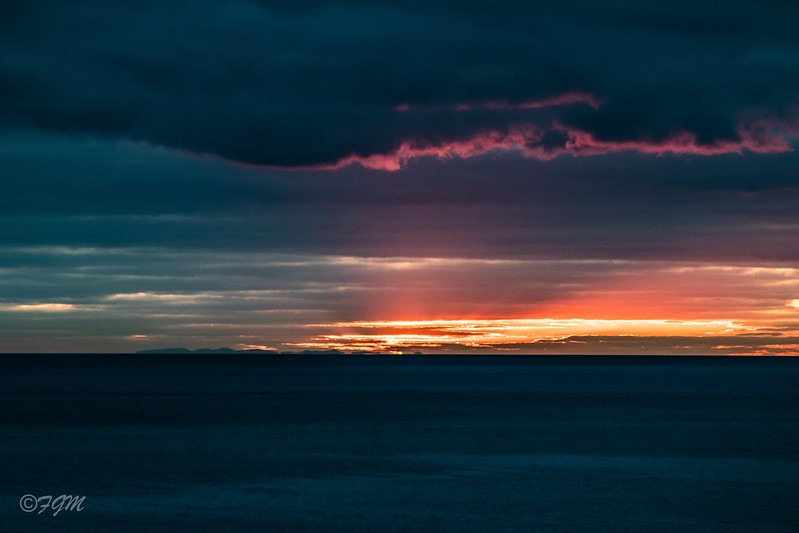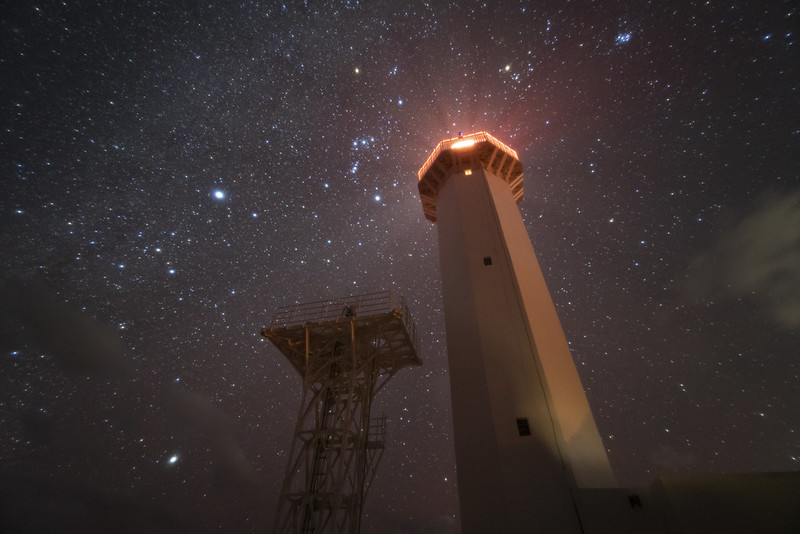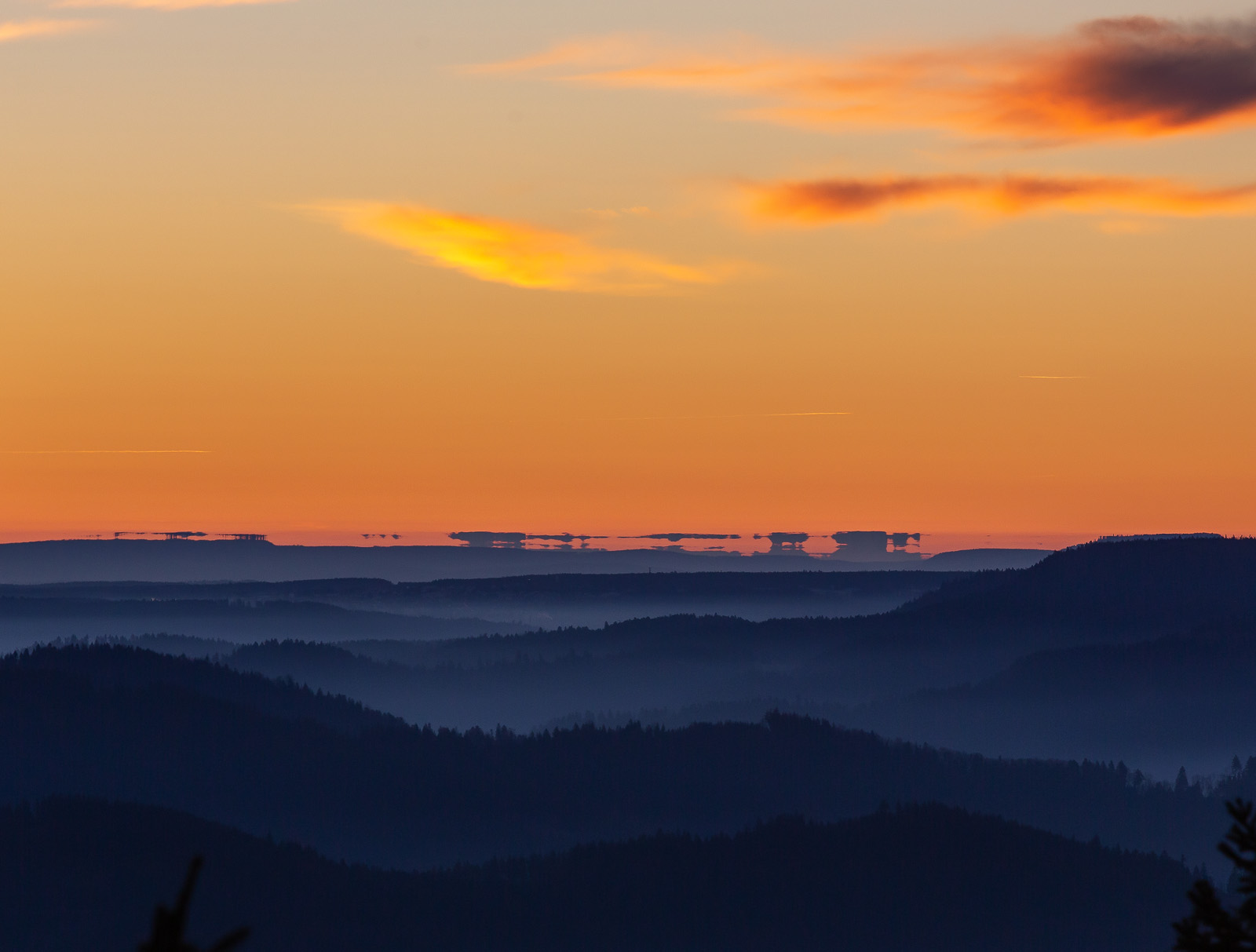Page 2 of 6
Re: Submissions: 2020 January
Posted: Sat Jan 04, 2020 11:02 pm
by barretosmed
TNGC 6334 (also known as the Cat's Paw Nebula, Bear Claw Nebula, or Gum 64)
NGC 6334 is a large star-forming region, covering an area in the night sky slightly larger than the full moon. It is one of the most active star nurseries producing massive stars in the Milky Way.
Located toward the constellation Scorpio, about 5,500 light years away and an estimated 50 light years in length.
The big bright cloud has earned the nickname cat paw because it looks like a gigantic cat footprint because of the three bubbles in the image that resemble the pads of its paws.
Equipments :
Apo Triplet 150mm
Qhy 16200mm
53 x 500 ”- HSS (approximately 8 hours of captures taken)
Sao Carlos - SP - Brazil
During the month of june - 2019
Processing and Capture:
Software: PixInsight, Adobe Photoshop, APT, PHD, Polemaster, Sharcap
Best details (click on high resolution):
https://www.astrobin.com/full/12dl0p/C/?nc=user
Copyright: Fernando Oliveira de Menezes
Email:
Barretosmed@hotmail.com
Re: Submissions: 2020 January
Posted: Sat Jan 04, 2020 11:25 pm
by Wormie
Green sun over Ibiza
Green flash over Ibiza during sunset
EOS 80D, Pentax 135mm f2.5 SMC
Copyright: Francisco Gil Muñoz, Josep Albert Perelló Font
Email:
fragimuo@gmail.com
Instagram: @francisco.gilmunoz
Re: Submissions: 2020 January
Posted: Sun Jan 05, 2020 3:07 pm
by Pascal FACON
Ic 410

Re: Submissions: 2020 January
Posted: Sun Jan 05, 2020 4:39 pm
by Kinch
My first image for 2020
Rosette Nebula.
Click on the image above for larger image.
Total 16Hours: HaSHO. 3nm astrodon Filters. FlI ML16200 camera on Tak FSQ 130ED.
Details @
http://www.kinchastro.com/rosette-nebula.html
Rosette Nebula
Posted: Sun Jan 05, 2020 7:27 pm
by alcarreño
Copyrights : Raul Villaverde, Domingo Pestana y Nicolas Romo
RGB & Halfa
25x200"
25x600"
 roseta_2020
roseta_2020 by
Raul Villaverde, en Flickr
Re: Submissions: 2020 January
Posted: Sun Jan 05, 2020 7:44 pm
by Raphdubuc
Orion belt and many friends,with beautiful colors.
Canon lens 70-200 stop 154 mm with modded 6D EQ-6 mount.
68 pictures of 70 seconds and 25 pictures of 5 seconds for the bright core of orion nebula.
Copyright :Raphaël Dubuc
Re: Submissions: 2020 January
Posted: Mon Jan 06, 2020 1:40 am
by barretosmed
RIGIL KENTAURUS (ALPHA CENTAURI)
Alpha Centauri (α Centauri, α Cen), also known as Rigil Kentaurus, is the closest star system to the Solar System, at a distance of 4.37 light years (1.34 parsecs) from the Sun.
Alpha Centauri is not exactly a star but a star system.
One of the three stars in the system, the smallest, is called Proxima Centauri.
- and that's because it's the closest star to Earth!
Next Centauri is the closest star to our Solar System and is at a distance of about 4.3 light years.
***Equipment:***
Canon 6D
Rokinon 14mm 2.4
30 "single frame
ISO 1600
*** BEST DETAILS: *** (the face greatly degrades the image)
https://www.astrobin.com/full/tfreyh/0/?nc=user
PROCESSING:
Adobe Photoshop, PixInsight.
Pousada Campos Misticos
Munhoz - MG - Brazil
06/30/2019
Copyright: FERNANDO OLIVEIRA DE MENEZES
EMAIL:
BARRETOSMED@HOTMAIL.COM
Re: Submissions: 2020 January
Posted: Mon Jan 06, 2020 3:01 am
by asymon
Flaming Star and Tadpole Nebula
http://www.woodlandsobservatory.com/index.htm
Copyright: Alistair Symon
This is a 2 image mosaic of the Flaming Star and Tadpole Nebulae. 22 hours of data was collected through Narrowband filters and combined using the Hubble Palette. A higher resolution image can be found here.
http://www.woodlandsobservatory.com/Fla ... ow2020.htm
Re: Submissions: 2020 January
Posted: Mon Jan 06, 2020 11:48 am
by masahiro miyasaka
Re: Submissions: 2020 January
Posted: Mon Jan 06, 2020 2:33 pm
by andythilo
Hi, my first ever post here

NGC 1499 California Nebula. Full details on Flickr.
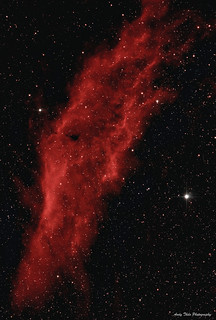 NGC 1499 California Nebula
NGC 1499 California Nebula by
Andy Thilo, on Flickr
Cheers
Andy
Re: Submissions: 2020 January
Posted: Mon Jan 06, 2020 11:18 pm
by perezfotografia
"Where everything started"
IC1396. Elephant's Trunk nebula.
Copyright© Alvaro Perez Alonso and Toni Mancera
www.scapenature.com
HaRGB. Ha 32x600'' FSQ106 + RGB 11x600 TSAPO65Q
In HD:
https://dl.dropboxusercontent.com/s/54e ... 0.jpg?dl=0
https://dl.dropboxusercontent.com/s/6ma ... 0.jpg?dl=0
Re: Submissions: 2020 January
Posted: Tue Jan 07, 2020 12:30 am
by barretosmed
MOON
BEST DETAILS:
https://www.astrobin.com/full/u2k2ok/B/?nc=user
EQUIPMENTS:
APO 150MM TRIPLET
ASI 1600MC
MOONS
08/08/2019
10/13/2019
Copyright: Fernando Oliveira de Menezes
Email:
barretosmed@hotmail.com
Re: Submissions: 2020 January
Posted: Tue Jan 07, 2020 2:28 pm
by Wu Zhuoqun
Carina Nebula 2*2 Mosaic
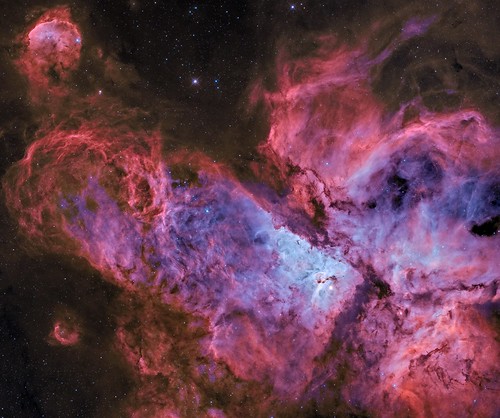
Copyright: Zhuoqun Wu, Wei Zhang
Full resolution and detail:
https://www.astrobin.com/full/94m1u0/0/?nc=user
Re: Submissions: 2020 January
Posted: Tue Jan 07, 2020 3:00 pm
by Andromeda 2013
Re: Submissions: 2020 January
Posted: Tue Jan 07, 2020 3:02 pm
by Andromeda 2013
The Rosette Nebula
https://www.flickr.com/photos/92681330@N06/48929172471
Copyright: Daniel Pasternak / Deddy Dayag
Re: Submissions: 2020 January
Posted: Tue Jan 07, 2020 4:00 pm
by vendetta
Re: Submissions: 2020 January
Posted: Tue Jan 07, 2020 9:46 pm
by addicted2light
Alps fata morgana
Fata Morgana of the Austrian Alps about 200 km away. Taken a few minutes before sunrise on Regeleskopf, Oberwolfach, Black Forest, Germany.
http://addicted2light.de/
Copyright: Levin Dieterle
The oak
Posted: Tue Jan 07, 2020 10:52 pm
by alcarreño
Copyrights: Raul Villaverde Fraile
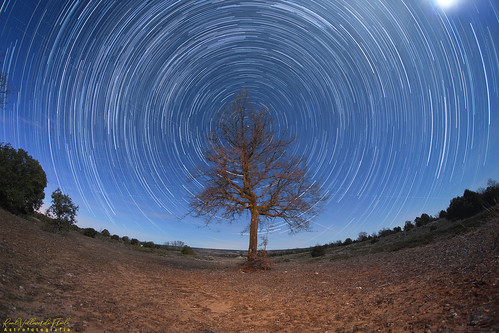 Roble
Roble by
R Villaverde, en Flickr
Re: Submissions: 2020 January
Posted: Tue Jan 07, 2020 11:26 pm
by Bobinius
The Rosette Nebula in SHO
Copyright: Bogdan Borz

Full resolution and technical data:
https://www.astrobin.com/full/42a3ql/B/
Re: Submissions: 2020 January
Posted: Wed Jan 08, 2020 3:56 am
by Michael,nexstar user
https://drive.google.com/file/d/16V80zN ... p=drivesdk
Nothing to say here. Just sirius through my nexstar 4se, single raw exposure ISO 3200 20 seconds, no processing, no auto guiding.
Re: Submissions: 2020 January
Posted: Wed Jan 08, 2020 8:34 pm
by alexconu

A wonderful display of nacreous clouds was visible this evening from Oslo.
Nacreous clouds, sometimes called mother-of-pearl clouds, are rare but once seen are never forgotten. They are mostly visible within two hours after sunset or before dawn when they blaze unbelievably bright with vivid and slowly shifting iridescent colours. They are filmy sheets slowly curling and uncurling, stretching and contracting in the semi-dark sky. Compared with dark scudding low altitude clouds, nacreous clouds stand majestically in almost the same place - an indicator of their great height.
They need the very frigid regions of the lower stratosphere some 15 - 25 km high and well above tropospheric clouds. They are so bright after sunset and before dawn because at those heights they are still sunlit.
They are seen mostly during winter at higher latitudes. Sometimes, however, they occur as far south as England.
Re: Submissions: 2020 January
Posted: Thu Jan 09, 2020 12:32 am
by EasingTheBadger
M42 - The Orion Nebula and the surrounding Orion A molecular cloud
Copyright: Colin Wilson
https://i.redd.it/2f6rnmeypf941.jpg
Equipment:
- Williams Optics Redcat 51 APO 250mm f/4.9
- ZWO ASI294MC Pro
- Orion 2" SkyGlow filter
- iOptron SkyGuider Pro with iPolar
Exposures: captured in Astro Photography Tool
- 119 x 15-second subs
- 43 x 240-second subs
- no calibration images
Processing:
- PixInsight:
- Debayer
- Blink to cull images and look for aliens
- StarAlignment
- ImageIntegration
- DynamicCrop
- DynamicPSF
- Deconvolution
- AutomaticBackgroundExtractor
- DynamicBackgroundExtractor
- BackgroundNeutralization
- SCNR (green 0.75)
- MultiscaleLinearTransform for luminance and chrominance separately
- Do all the above for the 15-second subs and the 240-second subs separately
- StarAlignment on the 15-second composite and the 240-second composite
- HDRComposition using the aligned images
- DynamicCrop
- HDRMultiscaleTransform
- MorphologicalTransformation
- ScreenTransferFunction autostretch
- HistogramTransformation
- save as 16-bit TIFF
- Photoshop: edited curves, levels, saturation, vibrance, and image orientation
- Lightroom: tweaked color, sharpness, and noise reduction; exported as JPG
Taken the night of 4 Jan 20 from Bortle 5 skies in my backyard in Golden, Colorado, USA for some of the 15-second subs and over the night of 5 Jan 20 and into the morning of 6 Jan 20 under Bortle 3 skies at the Edmund G. Kline Dark Site in Deer Trail, Colorado, USA for the 240-second subs and the rest of the 15-second subs. The moon was 55-60% full both nights.
Re: Submissions: 2020 January
Posted: Thu Jan 09, 2020 7:26 pm
by Lighty
NGC 1499 - California in colors
A known nebula but nevertheless rather difficult to photograph, all in nuances, volumes, and "blur / sharp" effect.
Located in the constellation of Perseus, 70 light years long and +/- 1500 light years away from us, it is a very beautiful veil of interstellar gas which emits light in the near infrared. This large "cloud" is illuminated (or in gravitational interaction) by / with the blue star Menkib, in the top center of the image, and "above" the nebula.
Picture processing was very sensitive to treat. It may be possible to give it a lot of different shades and gradations, the whole thing is to remain consistent with the original colors.
Here, I wanted to emphasize its richness of nuances, especially on the "lower part" which has more yellow hues, rather than staying on a gradient of red and magenta only. The clouds around the nebulae are also present.
1st ever HaRGB image I was able to take, at the end of 2019.
Exifs & gear :
Nikon D750 Astrodon
TS Optics Imaging Star 71/347 f/4.9
Baader Ha 7nm 2" and Astronomik CLS 2" filters
Astrotrac TT320X AG
Berlebach UNI Astro 4 Custom
Ha : 175x240s - good sky conditions
RVB : 65x180s - average sky conditions
+DOF
Pre-processing and stacking : Siril 0.9.12
Processing : Photoshop CC 2017
High resolution (recommended) :
https://www.astrobin.com/pvdnpy/
Copyright: Maxime Oudoux
https://maximeoudouxphotographie.fr
Re: Submissions: 2020 January
Posted: Thu Jan 09, 2020 10:12 pm
by Freddyuniverse
Between the constellations of Monoceros and Orion
Cámara; Canon 6D Modified
Pentax67SMC 90mm
300" ISO 1600
December 26, 2019
Procesed with PixInsight
https://cms.e.jimdo.com/app/cms/preview ... e-caballo/
www.freddyuniverse.com
Between the constellations of Monoceros and Orion, a region full of Emission Nebulae, Dark Nebulae and interesting stars. At the top in the constellation of Monoceros, Cone Nebulae, La Rosette and R1 Dark Nebula Complex. In the middle of the photo, the red supergiant star, Betelgeuse, the second brightest star in the constellation Orion, just now in December 2019 has declined dramatically for two months, calling the attention of astronomers and fans who they debated and speculate if it could be the next supernova. Below, The Barnard Loop, surrounding the Orion Belt and The Horsehead Nebula.Copyright: © Freddyuniverse, Alfredo Sayalero
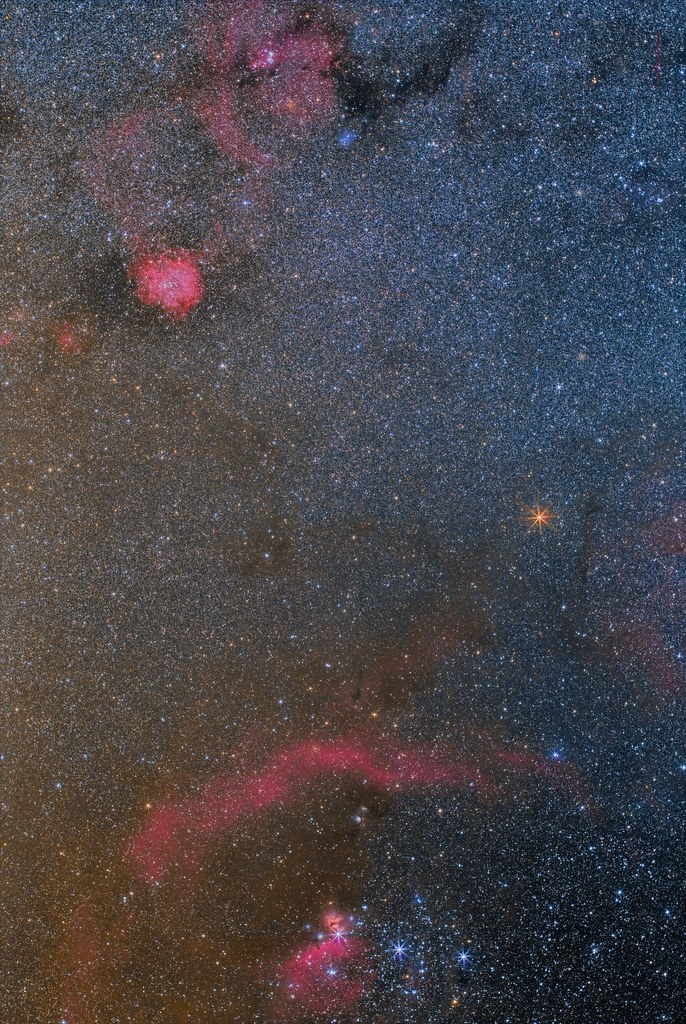 09012020-RossetaCabezaResam
09012020-RossetaCabezaResam by
Freddy S., en Flickr
Re: Submissions: 2020 January
Posted: Fri Jan 10, 2020 1:13 am
by barretosmed
The Grus Quartet (Galaxy) (NGC 7552, 7582, 7590, 7599)
Located in the Grus Constellation, are all 4 spiral galaxies.
Further up we have NGC 7552, the smallest of the three below is ngc 7590, with its mate next to ngc 7599. The most central and most studied of them is NGC 7582.
NGC 7582 is a type 2 Seyfert galaxy, such a classification is due to the fact that the galaxy has an extremely bright supermassive central black hole very similar to a quasar (most energetic objects in the universe). The black hole of NGC7582 is about 10 million times the mass of our sun.
Best details:
https://www.astrobin.com/full/1hgejw/B/?nc=user
Equipment:
Apo 150mm triplet
Qhy 16200
15 L 500 "
43 RGB 300 "
Processing and Capture:
Software: PixInsight, Adobe Photoshop, APT, PHD, Polemaster, Sharcap
07/27/2019
Munhoz - MG - Brazil
Copyright: Fernando Oliveira de Menezes
Email:
Barretosmed@hotmail.com
